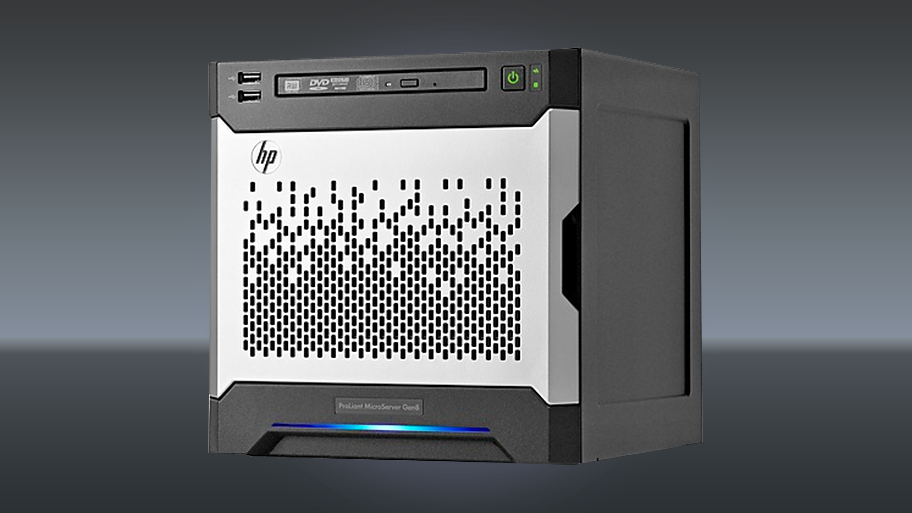Small businesses: How to choose the right server
Guidance on how to pick a small server

Sign up for breaking news, reviews, opinion, top tech deals, and more.
You are now subscribed
Your newsletter sign-up was successful
While a server may seem like an unnecessary investment for many small businesses, it can prove to be a valuable asset for those that need to store and manage sensitive data in a secure way. The UK’s General Data Protection Regulation (GDPR) has reinforced how important it is for businesses to protect the personal data of their customers and employees, and a server can help businesses to do this by providing a centralized location for data storage and backup. Additionally, as more and more businesses are moving to remote or hybrid work arrangements, a server provides a secure and reliable way to store and share data and can help businesses to improve their productivity and bottom line.
So what does a small business need to consider to effectively select the best solution to meet their needs? There are several factors and options that need to be explored before making that decision.
Managed Accounts Team Leader at Novatech.
Using the Cloud or an on-premise server
The first question is often whether to use a cloud or on-premise solution. Cloud-based solutions have historically been championed as the simple, easy way of managing data. By paying a monthly subscription, businesses can access a cloud server without the need for on-site hardware. This model can be very tempting to businesses as an operating cost rather than viewed as a capital outlay.
However, a consideration with cloud storage is that you are beholden to ever-increasing subscription costs, with licensing costs often increasing at each renewal. Additionally, in recent years when energy prices have sky-rocketed and the environmental impact of mass cooling systems required for the gargantuan data centers has become clear (exposed by BBC Panorama in February this year), many businesses have steered back to on-premise servers.
For many businesses, their nervousness around owning their own servers is the concern that if any problems arise, it is down to them alone to fix. For organizations without a large, experienced IT team, this can prove daunting. However, if the server is built properly at the outset, it should run seamlessly in the background and not be something that needs regular management.
However, picking a server is not necessarily straightforward. Businesses need to consider their use case, the space for potentially storing and maintaining a server as well as their longer-term goals for growth and potential diversification.
Future-proofing is critical
Scalability is vital for a business that is experiencing a steep trajectory or has strong ambitions for growth in the future. The ability to leave space for extra drives or an additional processor could be very useful further down the line. Many may find that a tower server does the job, whereas, for companies with more people, a rack might be best. However, space can be a limiting factor. A dedicated, air-conditioned room is needed to host a server, which for many businesses is simply not possible.
Sign up to the TechRadar Pro newsletter to get all the top news, opinion, features and guidance your business needs to succeed!
It is also dependent on the industry. For example, a mechanic’s garage may only use their computers for invoicing and basic email and therefore a full rack server might be overkill. Conversely, a smaller accountancy firm might need to keep years of records and information and be able to store it in a secure, central location. Therefore, a rack server will be the best, most effective option.
Technology partners’ critical role when choosing a server
One of the most important decisions a small business can make is that of the technology partner they want to work with to purchase and install or set up the server.
To select the right server, it is important for a business and its technology partner to understand what is needed now as well as what the potential requirements are that the business may have in the future.
Experienced specialists can provide consultative advice and help guide key business decision-makers through the important considerations they must make when choosing a server and present them with the most suitable solutions, as well as having additional insights from across the market. Out-sourced specialists know it is not a ‘one size fits all’ job and so they will need to gain a full understanding of the business. For example, a hospital ward where there are several computers used by multiple users throughout different shifts means the most effective licensing solution to accompany the server is device licenses rather than user licenses which would otherwise prove excessively expensive. Conversely, in a law firm where associates might use a desktop computer to access files, but a small, lightweight laptop to take to client meetings; a user license would be the most cost-effective choice.
Additionally, IT partners can provide advice when it comes to resilience. Having emergency battery capability in place in case of power outages can prove vital to avoid loss of data while a daily back-up to a cloud location can provide disaster recovery; something that might be a prerequisite for a business undertaking publicly funded projects or submitting tenders for new business. And certainly, vital for business continuity in any case.
Ultimately, there are hundreds of different options, brands, solutions, and configurations of servers available to small businesses. However, this huge choice can make the decision-making process even harder for businesses; big or small, and that is where consultative advice as well as the technological knowledge and capability of a partner is crucial.
Nick Copeland is Managed Accounts Team Leader at Novatech. Nick works with clients to provide a full range of IT solutions including end-user computing, infrastructure and software licensing. Novatech serves sectors including universities, the creative industry, aerospace and defense.